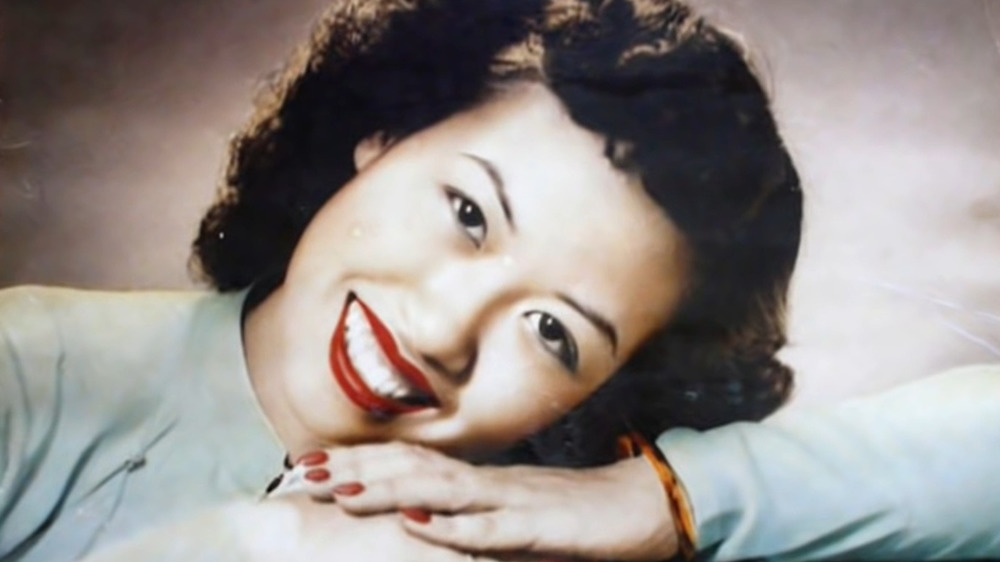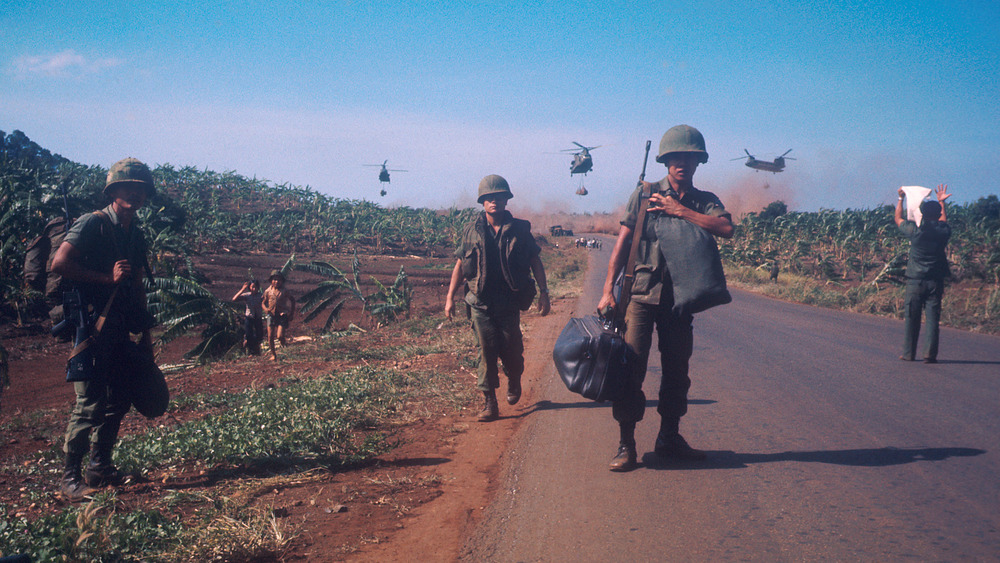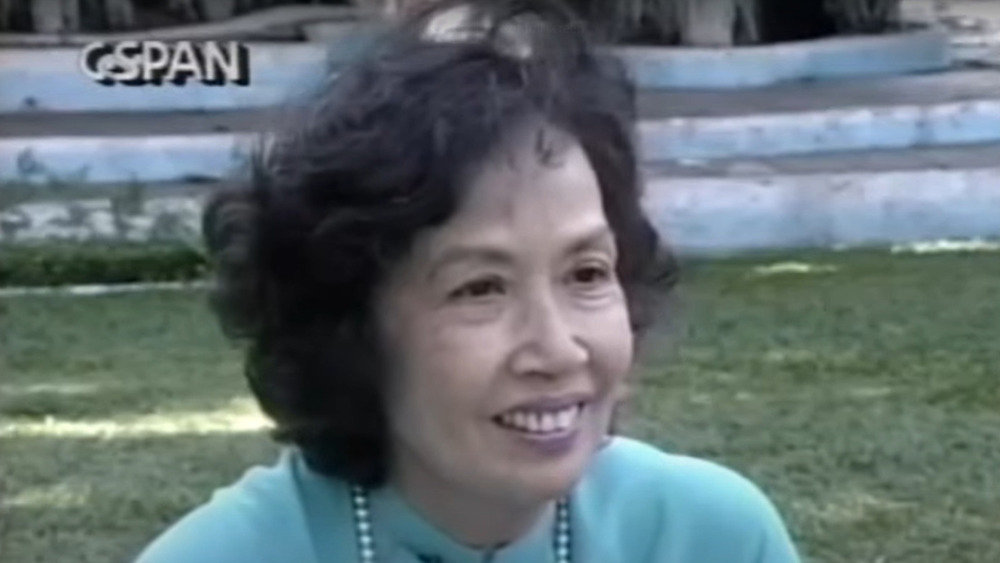The Crazy True Story Of Hanoi Hannah
In an era when internet-driven disinformation is a near-constant source of discussion, it can be easy to forget that Americans have dealt with this kind of deception before, as many Vietnam veterans could attest. The woman whose voice many of them would come to forever associate with their time as soldiers in Vietnam spoke to them directly, a daily message over the radio asking them a question they were most likely rarely asked during their time in country: "How are you, GI Joe?"
The voice belonged to a young woman named Trịnh Thị Ngọ, also known by her adopted radio alias, Thu Hương, or "Autumn Wind." But U.S. troops colloquially knew her by yet another name: Hanoi Hannah. The New York Times reports that when she was a child in post-colonial Vietnam, Ngọ learned to speak French in addition to her native Vietnamese, but her parents offered her English lessons after the little girl had grown tired of reading subtitles while watching Gone With the Wind. It was a choice that would prove instrumental to her later radio career.
In 1955, Ngọ joined Voice of Vietnam as a volunteer, but it wasn't long before her English skills were put to a highly specialized use by the broadcaster. Following American ground forces' first arrival in Danang in 1965, says The New York Times, Ngọ would regularly read scripts written for her by the North Vietnamese Army, whose propaganda machine hoped to demoralize American troops. The effects those broadcasts had on those GIs however, would prove far more complex.
Hanoi Hannah was a source of rage, but also of familiarity
Following Ngọ's death in 2016, journalist Don North, who'd been a reporter during the Vietnam War, offered up a rich and contradictory remembrance of the Hanoi Hannah broadcasts in the New York Times. As he explained, sometimes these transmissions would play American rock music or imply servicemen's girlfriends back home weren't faithful. Other times, the messages were far more devious, including encouraging GIs to kill officers or go AWOL. Understanding that race in the 1960s was an explosive issue for Americans, North explained that the propagandists would give Ngọ scripts to read that spoke of racism in the military or events back home like the 1967 Detroit riots.
According to North, one of the reasons her broadcasts were so popular among the troops, was that stations run by the American military were not talking about these events. This glossing over of crises set up a strange relationship wherein some GIs grew to distrust Armed Forces Radio, or as North described the situation (posted at Psywarrior), "It wasn't that Hanoi Hannah always told the truth, she didn't. But she was most effective when she did tell the truth and U.S. Armed Forces Radio was fudging it."
Looking back on Hanoi Hannah's legacy
After Ngọ's death, several outlets looked to Vietnam vets to sum up her influence. Unsurprisingly, their opinions of her, reported by Public Radio International (PRI), ran the gamut from anger — for instance, when a particular unit's location was mentioned — to a kind of hazy fondness.
For Veteran Robert Frary, the broadcasts offered up some strange relief. "Hanoi Hanna was hilarious[...] Her appeals would, IMO, make a good SNL skit," he said. "It seemed so surreal at the time." Even the late Senator John McCain, who'd been a prisoner of war for more than five years with no choice but to listen to her broadcasts, said of Ngọ, "She was a marvelous entertainer. I'm surprised she didn't get to Hollywood."
Ngọ's broadcasts ended as American troops left in 1973, but her influence lives on in the memories, good and bad, of countless veterans. In an interview with C-SPAN before her death, cited by PRI, Ngọ remained true to the cause, explaining she'd believed in the North Vietnamese communist revolution, adding that "I don't have any enmity for the Americans in general." As for where she got much of her often-uncannily accurate information, like the names of soldiers on certain ships or the locations of specific units, Ngọ offered up a simple explanation in the New York Times interview with North: "The U.S. Army Stars and Stripes" newspaper, she explained, adding, "We had it flown in every day."


